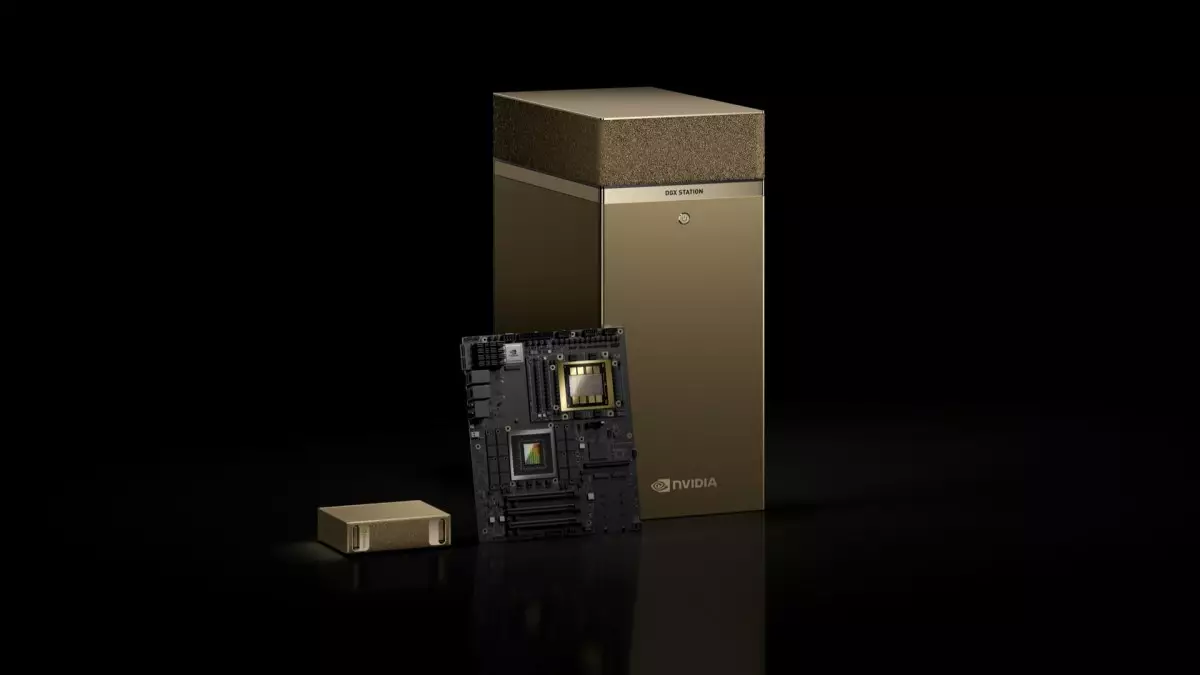At the recent GTC 2025 conference, Nvidia has taken a gigantic stride in redefining the landscape of artificial intelligence with the introduction of its new lineup branded as “AI personal supercomputers.” These advanced machines are powered by the innovative Grace Blackwell chip platform, marking a pivotal transition from traditional computing to an AI-centric future. Under the leadership of founder and CEO Jensen Huang, Nvidia has presented two exceptional models: the DGX Spark and the DGX Station. This announcement signifies not just an evolution in technology but also a revolution in how we understand and interact with computers.
The Power Behind the Performance
The technological prowess of the DGX Spark is astonishing, offering a staggering capacity to perform up to 1,000 trillion operations per second, fueled by its GB10 Grace Blackwell Superchip. This immense processing power positions the DGX Spark as a game-changer for developers and data scientists alike, enabling them to prototype, fine-tune, and operate AI models at an unprecedented scale. The innovation doesn’t stop there; the DGX Station incorporates the GB300 Grace Blackwell Ultra Desktop Superchip with a whopping 784GB of memory. These specs are not merely numbers; they represent a major leap that will empower enterprises to explore new possibilities within their AI initiatives.
The AI-Centric Philosophy
Huang’s assertion that “this is the computer of the age of AI” isn’t just a tagline—it encapsulates a philosophy that acknowledges the necessity for specialized machines in the rapidly evolving technological landscape. The push for optimized AI computing isn’t only about speed; it’s about suitability for the diverse needs of enterprises, ranging from small startups to major corporations. The DGX lineup aims to bridge this gap, providing scalable solutions tailored to various operational sizes. This emphasis on powerful hardware tailored for unique applications showcases Nvidia’s commitment to fostering innovation across industries.
A Future of Ubiquitous AI Agents
Huang further predicted, “AI agents will be everywhere,” indicating a fundamental transformation in how businesses operate. This suggests a future where AI will be seamlessly integrated into daily workflows, fundamentally altering productivity, decision-making, and customer engagement. The implications of this shift necessitate not just new software paradigms, but also powerful hardware that can handle the heavy lifting of AI computations. The introduction of the DGX Spark and DGX Station is Nvidia’s proactive response to this impending need, ensuring businesses are well-equipped to navigate the complexities of an AI-driven future.
Partnerships for Widespread Impact
With the DGX Spark already on the market and the DGX Station set to make its debut later this year through established manufacturing partners such as Asus, Boxx, Dell, HP, and Lenovo, Nvidia is not just creating technological advancements; it is also encouraging its widespread adoption. By collaborating with trusted names in the industry, Nvidia is ensuring that their supercomputers will be integrated seamlessly into the existing infrastructures of businesses, maximizing their utility and transforming workplace dynamics.
Nvidia’s announcements at GTC 2025 signal more than just new products; they embody a significant shift in computing aimed directly at the AI realm, illustrating how technology is increasingly becoming interwoven with the demands of modern-day enterprises and society at large.

